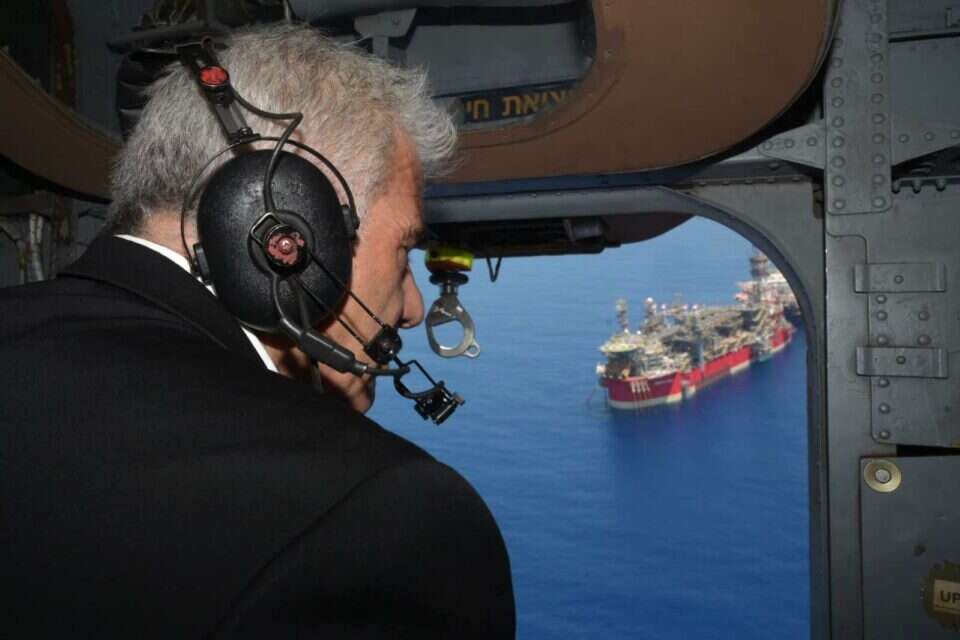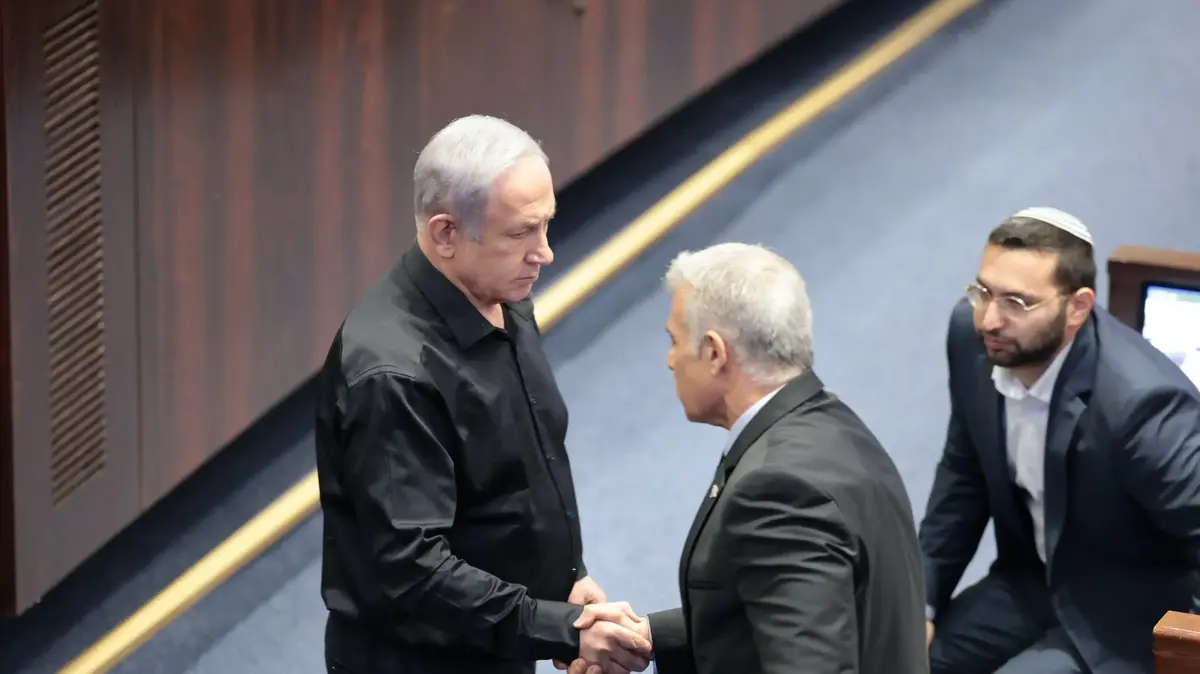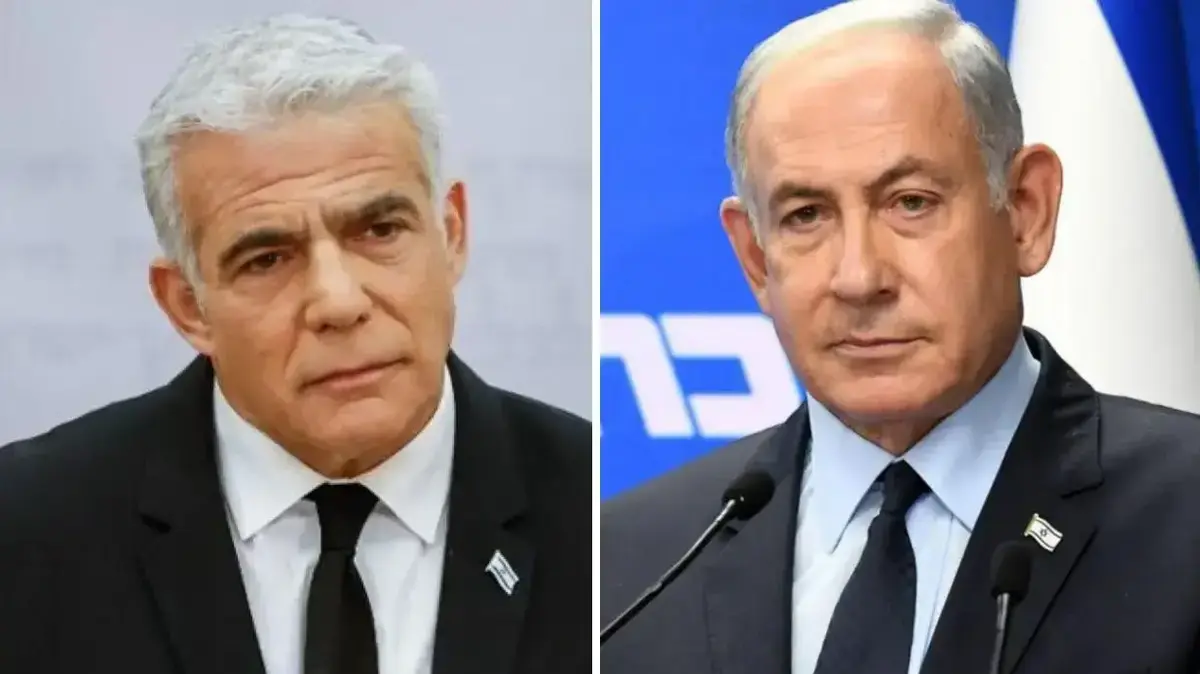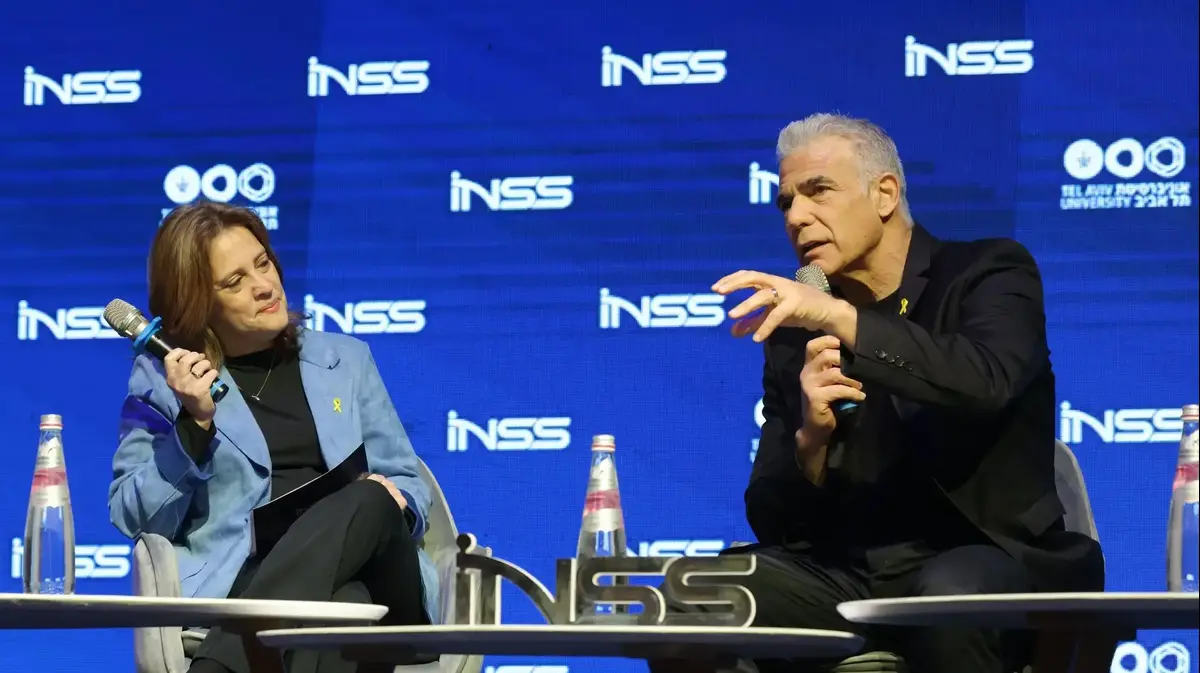American mediator Amos Hochstein met today (Wednesday) with Prime Minister Yair Lapid.
Yesterday Hochstein met in Beirut with President Aoun, Prime Minister Mikati and Parliament Speaker Berri. Each of the leaders represents a different sect in Lebanon (Aoun the Christians, Mikati the Sunnis and Berri the Shiites), and the fact that all three met with Hochstein together indicates a Lebanese consensus regarding the desire to reach to an agreement with Israel.
Currently, the only party opposing the agreement and making efforts to thwart it is Hezbollah, which is looking for new points of friction with Israel.
It is estimated that Nasrallah will try to claim victory in any scenario: if there is no agreement, he will claim that Lebanon was prevented from being humiliated, and if an agreement is reached, he will claim that thanks to Hezbollah, Lebanon won improved conditions.
Hochstein himself was interviewed by Lebanese television yesterday and expressed optimism: "The atmosphere in the talks is positive and we managed to reduce gaps and achieve progress," he said.
"I hope we can reach an agreement in the near future, and I am optimistic that we can make progress in the talks."
optimistic.
Hochstein, photo: E.
times
Against the background of the reports that Israel and Lebanon are close to an agreement on the maritime border issue, an Israeli official who was involved in the negotiations told "Israel Today" that "despite the optimism broadcast by the Lebanese side, we must wait for official reports, as in the past there were several cases in which it seemed that the agreement was close but the Lebanese Performed a 'U-turn' at the last minute.
The working assumption in Jerusalem is that the Lebanese government is interested in reaching an agreement for economic reasons, but Hezbollah is trying to thwart it since it is looking for more points of friction with Israel.
Although there is international law regarding maritime border lines, in many cases it is subject to different interpretations, and the problem facing Lebanon arose after it was discovered that the disputed area is rich in gas.
One of the proposals that came up in the negotiations is that a company from a third country will carry out the drilling in the area under dispute, and Lebanon and Israel will share the profits. However, on the Lebanese side, they opposed this due to the fear that the move would be perceived as an expression of normalization with Israel. An alternative solution that is currently being considered talks about a zigzag-shaped border line, That would give Israel a "bulge" towards the north in a way that would include the entire Harish gas field, and Lebanon a parallel "bulge" towards the south in an area where there is potential for gas deposits.
According to Major General (ret.) Ya'akov Amidror, former head of the National Security Council, "When we left Lebanon, the border line between the countries was determined on official maps approved by the United Nations, but two points of contention remained: Havat Sheba at the eastern end, and the maritime border line at the western end. There are at least three interpretations according to which the boundary of the economic waters can be drawn, and between us and the Lebanese a dispute arose over a triangle measuring approximately 850 square kilometers.
"Lebanon demanded that the maritime border line run along a certain route, and Israel offered a generous compromise in which it was willing to give up more than half of the area in dispute. Despite this, about a year ago, during the Nakura negotiations, Lebanon intensified its demands under pressure from Hezbollah and drew a new line that included the Shark Reservoir - a demand that, of course, we cannot accept."
According to Brigadier General (retd.) Prof. Yaakov Nagel, who served as the head of the MLA in practice, "This is a very complex issue that there are several possible ways to solve it, but the most important thing is that the solution be unequivocal, in a way that leaves no room for future disputes ".
were we wrong
We will fix it!
If you found an error in the article, we would appreciate it if you shared it with us















